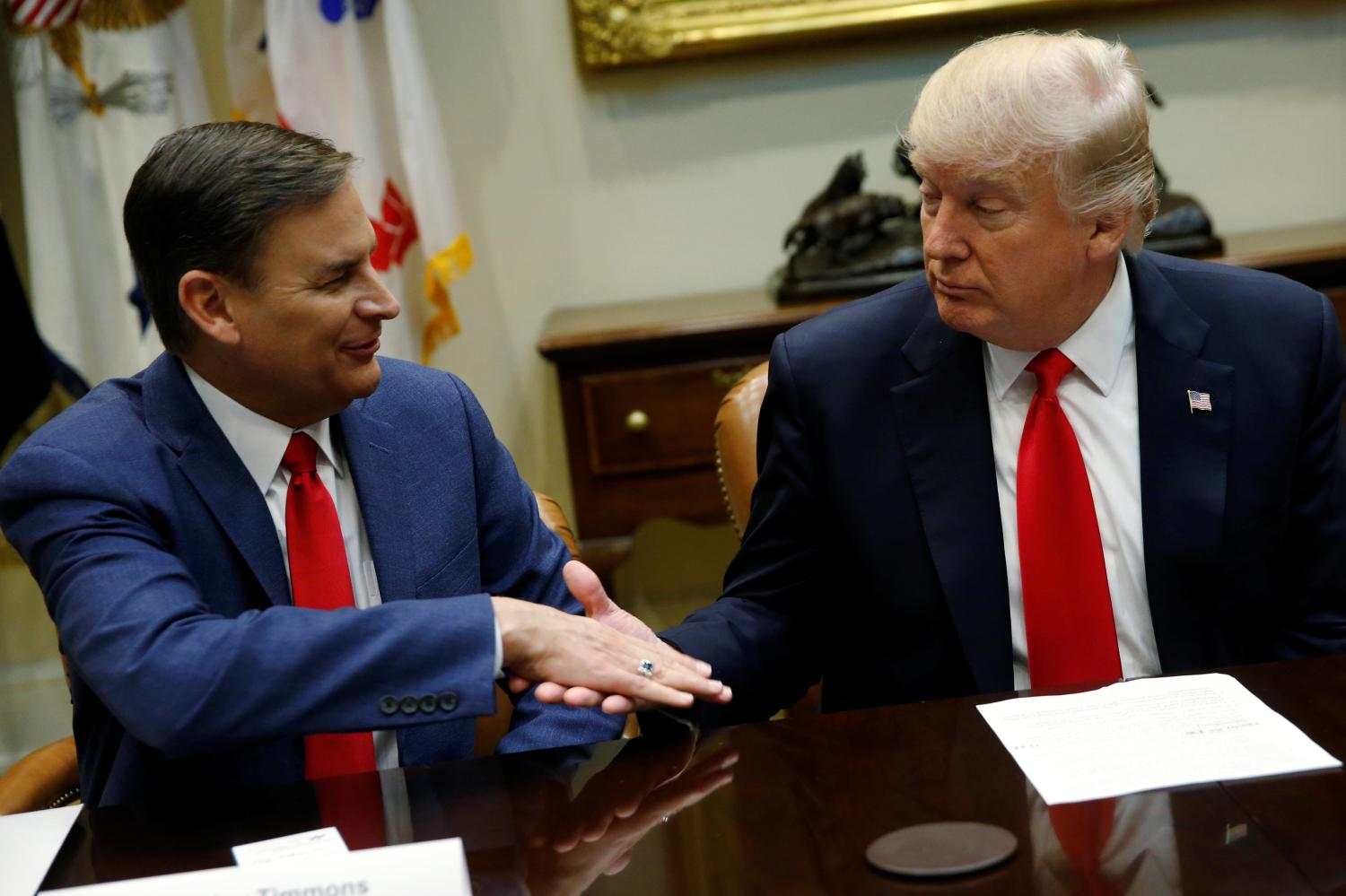The next president and Congress will face serious decisions about our nation’s healthcare, including the future of the Affordable Care Act (ACA), the solvency of Medicare, and how to slow the rising cost of health care. Republicans and Democrats have different approaches to health care policy and the presidential candidates Hillary Clinton and Donald Trump have radically divergent positions on specific health programs. Realistically, however, whatever the outcome of the election, major changes in health policy will require detailed bipartisan negotiations and buy-in from the public and a vast array of healthcare stakeholders. The post-election challenge for the Congress and the White House will be to break out of partisan gridlock and work together to craft compromises that enable at least incremental progress toward a better-functioning health system.
High-decibel partisan rhetoric over health policy in the Obama years created the expectation that conflicting health proposals would define a sharp divide between the two parties’ presidential nominees in 2016 and that the future of the American health system might depend on which party won the White House. However, although both candidates sparred with their rivals over health policy in the primaries, the issue has dropped below the radar in the general election.
This lack of attention to health policy in the election is unfortunate, because the next president and Congress will face decisions about the future of the Affordable Care Act (ACA), the solvency of Medicare, and slowing the rising cost of health care in ways that contribute to better health. In a more rational world, the election campaign might have educated the public on why health policy changes are needed, what the options are, and what the candidates favored. In the world we actually live in, neither presidential candidate stands to gain from expounding detailed heath policy proposals at this stage.
The major parties have contrasting approaches to health policy. Republicans generally favor a smaller role for the federal government, with more control at the state level, and heavier reliance on private markets; Democrats lean to more market regulation and a bigger role for Washington. Over past decades, the political system has balanced these competing mind-sets to produce a complex health care system with major roles for the private sector and all levels of government in both delivering and financing health care. Health care has grown to a big chunk of the economy (18 percent of the GDP) that supports powerful stakeholders with vital interests in maintaining the status quo or at least not modifying it rapidly to their disadvantage. Moreover, most Americans are reasonably satisfied with their health insurance (whether public or private) and respect the doctors and other providers who care for them. Voters complain about cost and access, but they are intensely fearful of policy changes that could prove worse than the status quo.
Realistically, whichever party wins the White House will find themselves negotiating complex incremental changes in existing federal programs with representatives of the other party and a wide range of public and private stakeholders.
Realistically, whichever party wins the White House will find themselves negotiating complex incremental changes in existing federal programs with representatives of the other party and a wide range of public and private stakeholders.
Hillary Clinton acquired her detailed knowledge of health care politics when she led President Clinton’s failed effort to expand health insurance in 1994 and participated in creating the bipartisan Children’s Health Insurance Program in 1997. If elected, she would work with Congressional leadership to preserve and expand coverage under the ACA and shore up Medicare without cutting benefits. In the likely event of Republicans retaining control of the House, these negotiations would severely test her political skill. To accomplish at least part of her agenda, she would likely have to concede more control to states, weaken some regulations, enhance the private sector role in Medicare, and scale back benefit enhancements that depended on substantial tax revenue. If Republicans refused to deal, gridlock would continue for another four years, but it is hard to believe that after a presidential loss, Republican leadership would view pure obstructionism as a viable strategy for building a future Republican majority.
Donald Trump has no experience with health care policy and his campaign has shared few details on what a Trump presidency would mean for health reform. In the primaries, he joined other Republican candidates in trashing the ACA and vowed to repeal and replace it with “something great.” He says the replacement will “broaden health care access, make healthcare more affordable, and improve the quality of the care available to all Americans,” but dropped no hints about what he has in mind. Once elected, he would find many members of Congress, even in his own party, unwilling to go back to allowing insurance companies to cherry pick healthy customers, and reluctant to deny affordable coverage to the millions of potential voters who acquired it under the ACA. After negotiation, the replacement might end up looking a lot like the ACA. Significantly, Donald Trump has disavowed plans to cut Medicare, probably realizing that any Medicare changes costs votes among seniors without gaining younger supporters.
Fortunately, health care is one of the few areas in which bipartisan cooperation has survived in the increasingly polarized Congress and even produced bipartisan legislation, such as the replacement of the unworkable Sustainable Growth Rate formula in Medicare with more powerful incentives to reward value rather than volume of health services.
There are no partisan magic bullets in health care—just hard work to make incremental progress.
The next president would be well advised to work hard to strengthen bipartisan cooperation in Congress. The effort should be directed to preserving and enhancing the broader insurance coverage achieved by the ACA (even if the legislation is given a new name), improving competition in the individual insurance market, especially in rural areas, and giving states more flexibility in how they provide affordable coverage as long as they actually do it. It should also include bipartisan action to preserve Medicare, continue experimentation with more effective delivery models, increasing competition in Medicare Advantage, and finding a better mechanism for keeping the long-run costs of the program under control.
There are no partisan magic bullets in health care—just hard work to make incremental progress.
The Brookings Institution is committed to quality, independence, and impact.
We are supported by a diverse array of funders. In line with our values and policies, each Brookings publication represents the sole views of its author(s).





